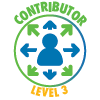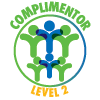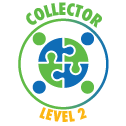Digital Systems Overview and Quality Audits
Presented by: Norma Antunano, Non profit national organization
Area of Focus: Technology and Session Level: Advanced
While digitalization enables agility offering a variety of competitive advantages at personal and organizational levels; it also brings new risks from the strategic and operational perspective. Overall, vulnerabilities are increasing as individuals and organizations expand their digital footprint. For digitalization in organizations, their core capabilities are integrated and enabled through complex platform architectures, and these depend on a variety of internal and external components, sub-systems, human and technological relationships at all levels. To sustain their mission, nowadays practically every organization depends on external partners. Key business systems and processes, core digital grids are increasing dependency on external partners of services or products. Orchestration of complex structures, relationships, and services is pivotal for sustainability of the organization. A framework for managing risks through auditing practices in digital spaces, in the context of the Quality professional is presented. This framework considers the insights and work from technology and human sciences experts including human development leaders. It includes the work developed by NIST in collaboration with IEEE, ISO standards, and other organizations committed to a sustainable future as societies and technology evolve.




